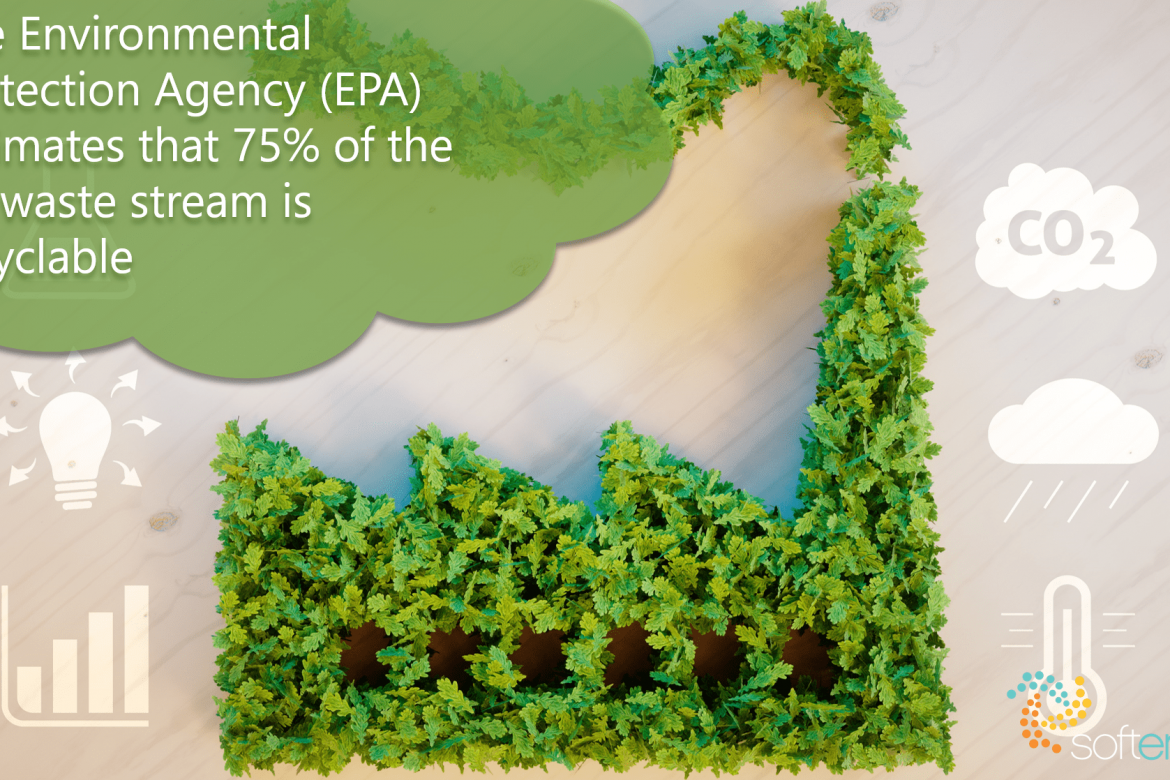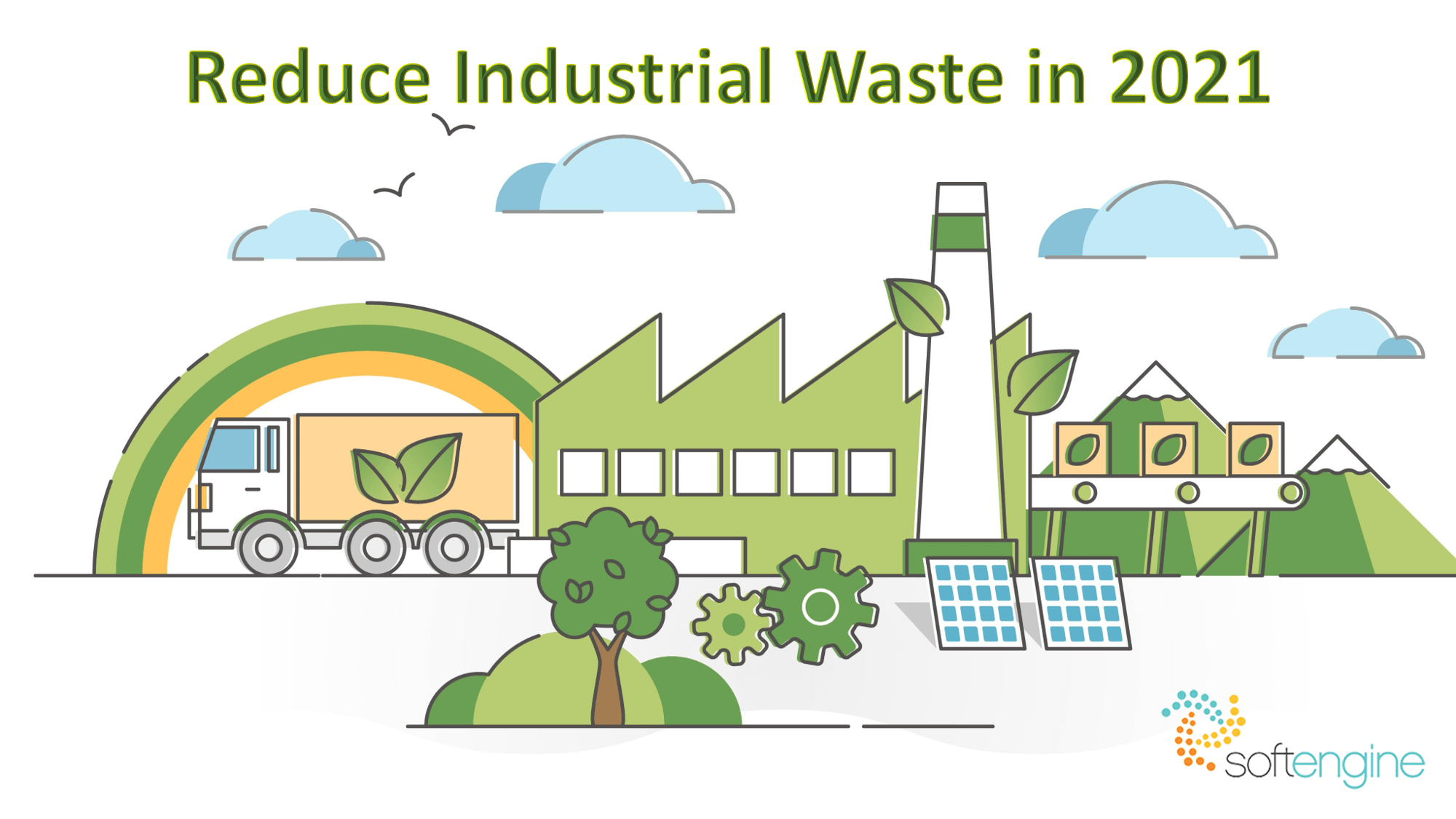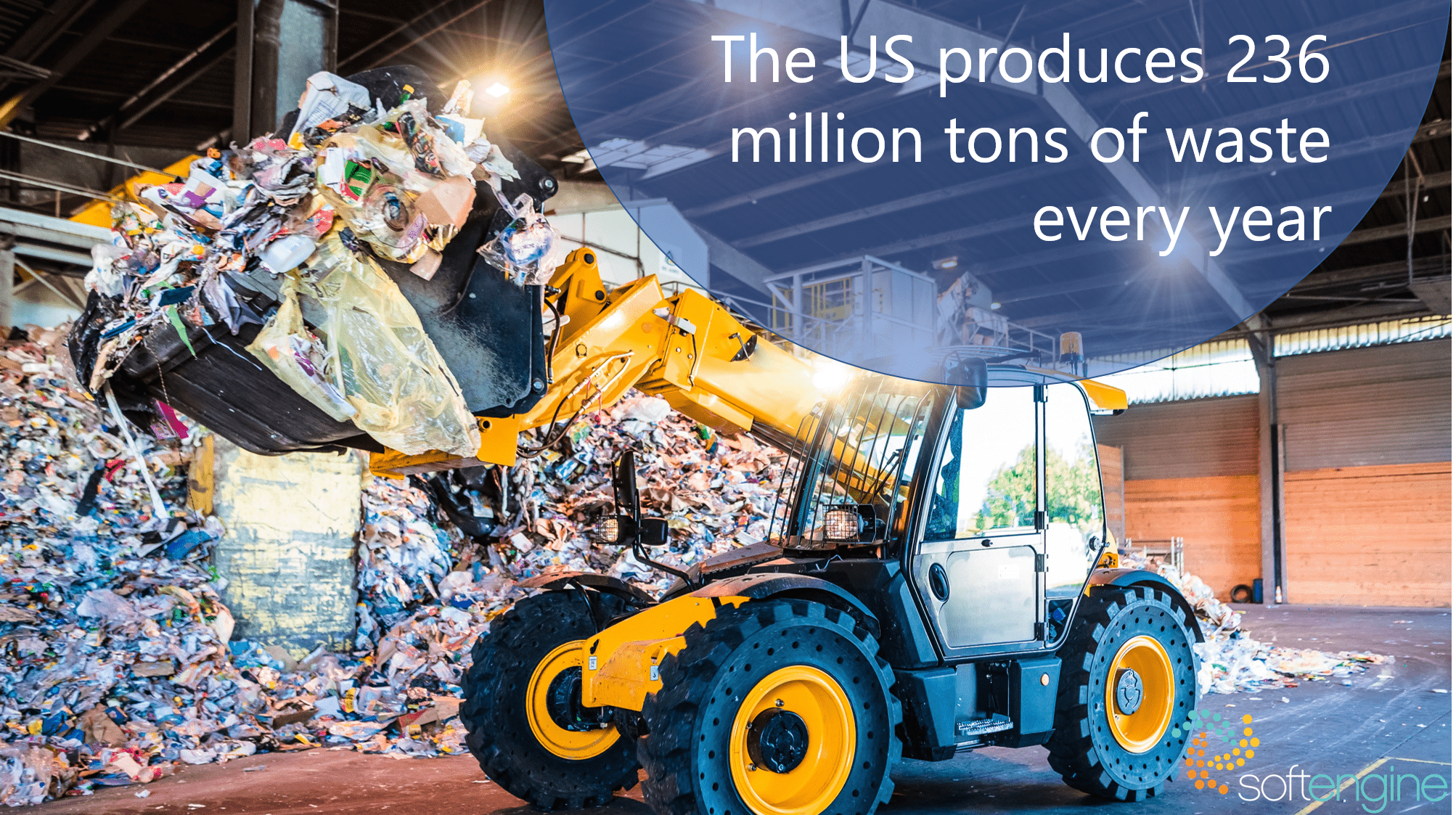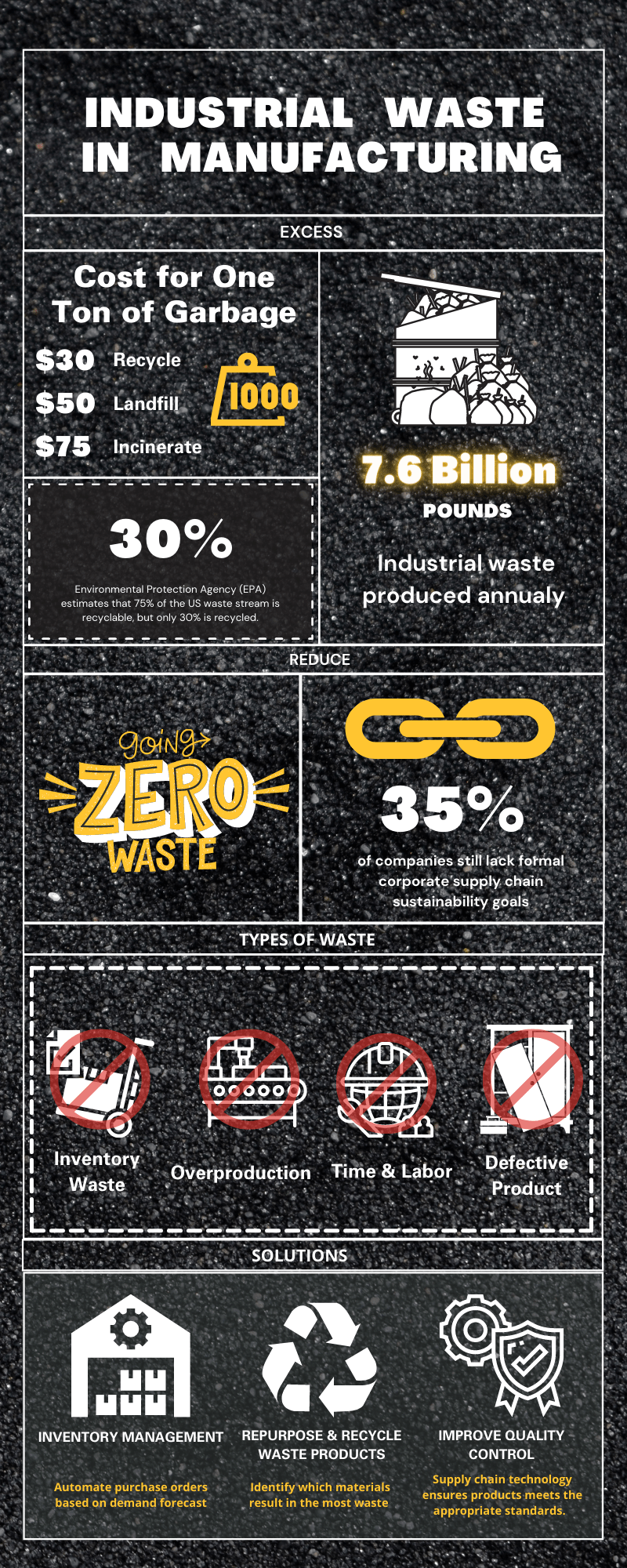Reducing waste in production processes has a twofold benefit to the environment and to your bottom line.
How Much Industrial Waste Do We Produce?
Fact: Reports tell us that Industrial manufacturers are burning through nearly 7.6 Billion tons of waste in the United States annually (2). In fact, nearly all of America’s waste (97%) is produced through industrial processes (1). It’s no wonder why manufacturers are making waste production a priority in 2021.
Why Are Leading Manufacturers Looking to Reduce Waste?
With new legislation, pressure from consumers to create sustainable manufacturing processes, and overall corporate responsibility, reducing waste is an issue that small and midsize manufacturers must address. Furthermore, doing so can result in significant cost savings! Waste has a two-fold cost to businesses, once when you purchase and process the wasted materials, and when you dispose of them. On average, for each ton of garbage it costs $30 to recycle, $50 to send it to landfill, and $75 to incinerate it (1). With manufacturers generating millions of waste annually, imagine how quickly these costs add up! In 2016, the solid waste industry generated $60billion in revenue, and that is not even considering the initial cost of the items prior to being thrown out(1)!
According to Gartner, 35% of companies still lack formal corporate supply chain sustainability goals, while another 49% of respondents said their companies did have such goals (3). The future of sustainability is looking brighter as supply chain professionals are beginning to see the financial benefits. Most of them plan to invest in waste reduction, ethical sourcing, water-efficiency improvements, and carbon emission reduction over the next 18 months (3).
How Can Manufacturers Reduce Waste?
We’ve all heard the old saying “Reduce, Reuse, Recycle.” The same can be done to reduce waste in manufacturing, but identifying areas to reduce, reuse, and recycle waste can get tricky when it comes to complicated production processes. Luckily, small and midsize manufacturers can implement multiple strategies to help reduce waste, benefitting both the environment and their bottom line!
Reduce Over-Ordering and Overproduction
Over-ordering raw materials or producing too much of a certain product for the level of demand results in inventory waste, which not only costs manufacturers the money spent on the items themselves, but also wasted time, labor, and storage capacity. Understanding your customers and being able to identify their greatest needs and preferences helps manufacturers produce the right number of the right products. Demand planning and effective inventory management allow you to identify how much of each item you have in store, and how much of each you need to purchase or produce.
Avoid Defect Waste with Optimum Quality Control
Defect products create waste for manufacturers in the form of raw materials, time, labor, machine degradation, and potentially lost customer orders and tarnished brand reputations. Standardizing processes across your production cycles allows you to maintain consistency, and you can schedule and conduct quality checks to ensure that items are produced properly, reducing waste and rework.
Repurpose and Recycle Waste Products
About one-third of the average dump is made up of packaging material like plastic, paper, and aluminum (1). Manufacturers can identify which materials in the production process result in the most waste when packaging is discarded, which by-products can be repurposed or sold, and how much of each is produced.
Conclusion
The pressure for manufacturers to create more sustainable practices has been steadily increasing as issues like climate change, pollution, and resource depletion are top-of-mind for legislation and consumers. Manufacturers can tap into opportunities for cost savings and revenue increases by repurposing materials and decreasing overall spending on waste.





